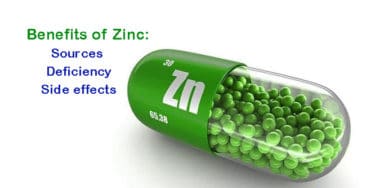Tryptophan is an essential amino acid needed for growth in infants. It helps balance the level of nitrogen in adults. It is involved in the production of niacin, melatonin, and serotonin. Tryptophan and the molecules it produces affect many functions in the body such as sleep cycle, mood, and behavior. It directly affects many functions in the brain. Its deficiency may lead to mental and cognitive disorders. Pellagra disease may develop due to niacin deficiency. Tryptophan is an essential amino acid and it is not produced in the body; therefore, it needs to be taken from foods. The level of tryptophan may also be supported with supplements.
Table of Contents
What is tryptophan?
Tryptophan is an essential amino acid that affects many functions such as growth and mental health. It may turn into many molecules, including serotonin and melatonin. Tryptophan, which is found in foods such as turkey, chicken, meat, cheese, yogurt, egg and fish, turns into vitamin B3, also called niacin, in the body. Niacin plays a key role in the production of a neurotransmitter called serotonin.
Melatonin maintains sleep cycles and prevents early aging. Serotonin production has an antidepressant effect in the body. As serotonin also affects the feeling of satiety, tryptophan supplements are also used as a nutritional supplement to control the appetite of obese people.
How does Tryptophan work?
Firstly, tryptophan is turned into 5-HTP (5-hydroxytryptophan) after it is taken from foods. This precursor molecule is then used to produce serotonin, melatonin and vitamin B6. Vitamin B6 is required for energy metabolism; It is turned into vitamin B3 (niacin), which is the precursor of serotonin, by the liver.
Serotonin is a hormone that transmits signals between the nerve cells. It also increases blood circulation by narrowing the blood vessels. While changes in serotonin level affect mood, cognitive skills and social behavior, melatonin controls the sleep-wake cycle. The immune system, self-clearing of the brain, mechanisms such as memory and learning process are controlled according to the sleep cycle. (1)
Benefits of Tryptophan
Most benefits of it, which is found naturally in foods, result from the potential increase of serotonin and melatonin levels. Increased level of serotonin enables healthier and higher quality sleep, helps relieve depression and anxiety, controls the pain tolerance and the appetite, and maintains mental health. (2)
Helps maintain social behavior
It may reverse many behavioral symptoms, including irritability, mood disorders, anxiety, and stress. Studies show that there is a significant decrease in the aggressive and impulsive behaviors of people whose diet is reinforced with tryptophan supplement. This amino acid also promotes positive social behavior.
Improves sleep quality
Serotonin and melatonin, which are the two main biomolecules that control sleeping, are produced from tryptophan. Those who take tryptophan supplements before bedtime are more likely to wake up rested, think more clearly, and show a better performance in tasks that require attention.
Supplements cause sleepiness; however, unlike sleeping pills, they do not cause poor performance or drug dependence and do not make it difficult to wake up. Studies show that supplements positively affect people suffering from mild to moderate insomnia by shortening the time to fall asleep and increasing the duration of sleep.
Helps fight depression
Almost all of the medications used for depression today aim to increase serotonin levels. It was discovered that patients with major depression had low tryptophan levels. This finding particularly helped enable the use of tryptophan supplement in depression treatment to balance serotonin levels. Besides being effective alone in the treatment of depression, it also creates a good combination with prescription antidepressants. (3)
Relieves anxiety and stress
Supplements reduce the biochemical markers of stress, especially cortisol which has many harmful effects on the human body. Low levels of tryptophan cause symptoms to worsen in people with anxiety disorder or post-traumatic stress disorder. Supplements are used to relieve restlessness in people with depression and anxiety disorder, the elderly, and women with premenstrual syndrome.
Supports cognitive skills
Studies investigating the effect of tryptophan on memory and learning processes reveal that low tryptophan levels negatively affect memory and cognitive functions. In particular, episodic memory may be damaged due to low tryptophan levels. This amino acid, the precursor of serotonin which is the hormone that labels the events which occur during a day, is also effective in cognitive process.
It makes the communication of the nerve cells more efficient and improves concentration. Supplements are used to treat some mental disorders, quit smoking, improve athletic performance, and relieve the symptoms of dementia.
Tryptophan deficiency
Causes of Tryptophan deficiency
Tryptophan, which is not produced in the body, needs to be taken through foods. Although the amount of tryptophan taken from foods varies depending on the amount of protein you take and sources of protein, approximately 1 gram of it can be taken per day with a typical diet. The serotonin levels in the body decrease when enough tryptophan is not taken from foods.
Smoking and drinking alcohol, high sugar intake or abnormally low level of blood sugar also reduce the conversion of tryptophan into other molecules. In addition, not consuming foods rich in vitamin B6 negatively affects the conversion of tryptophan into niacin and serotonin.
Tryptophan deficiency symptoms
- Mood disorders such as anxiety, stress and irritability
- Increased aggression and impulsivity of aggressive individuals
- Problems in long-term memory
- Disruptions in episodic memory due to events and experiences
- Learning disability and loss of concentration
- Problems in the digestive and nervous system
- Pellagra disease due to niacin deficiency
- Weight loss in children
Symptoms of tryptophan deficiency occur due to decreased serotonin production. Many studies show that people with depression have lower levels of tryptophan.
Treatment of Tryptophan deficiency
The tryptophan level of the body may be balanced with supplements or foods containing protein. It is also involved in the production of different molecules in the body; therefore, other molecules produced by tryptophan such as 5-HTP and melatonin may be used instead of tryptophan depending on the needs of an individual. For example, melatonin may be preferred to maintain the sleep cycle, and 5-HTP supplement may be used to increase serotonin levels in the body.
Medicines containing Tryptophan
Besides L-Tryptophan used as a supplement, 5-HTP (5-hydroxytryptophan) which is the precursor of serotonin, capsules or melatonin supplements are the supplements containing tryptophan. (4)
Foods containing Tryptophan
Tryptophan is found in foods containing protein. While meat is an important source of protein, there are also many vegetarian and vegan sources of it.
Which food is highest in tryptophan?
Salmon
Eating two portions of oily fish a week can provide enough tryptophan for most people. Oily fish, such as salmon, is also sources of omega-3 fatty acids. These fatty acids support bone strength, healthy skin and eye functions. Salmon is also a source of vitamin D, which is essential for strong teeth and healthy muscles.
Poultry
Poultry such as chicken, turkey and goose are good sources of tryptophan. Lean meats, such as chicken breast, are generally rich in protein.
Egg
Consuming eggs, which are rich in protein, may significantly increase the level of tryptophan in your body. Egg yolk contains amino acids of tryptophan and tyrosine, and choline, biotin and omega-3 fatty acids.
Spinach
Dark-green leafy vegetables such as spinach are also good sources. Spinach is also a vegetable rich in iron, and helps the body produce red blood cells.
Dry nuts and seeds
Dry nuts and seeds are herbal sources that provide abundant tryptophan abundantly. Although seeds do not contain the same amount of tryptophan as oily fish, chicken, or egg, they are suitable sources of it and protein for vegetarians and vegans. Dry nuts such as walnut, hazelnut, almond, cashew, peanut, and seeds such as flaxseed, sunflower seed, sesame seed are rich too. Dry nuts are also rich in protein, healthy oil and fiber.
Cheese
Another source that you can consume daily is cheese. Cheese also contains high amount of calcium, which support bone and teeth health.
Soy products
Soy-containing products such as tofu, soy milk or soy sauce are rich in tryptophan. They are alternative sources of it, especially for vegetarians and vegans.
Side effects of Tryptophan
It is considered safe at normal doses. At high doses, it may cause side effects such as;
- Dizziness
- Gastrointestinal side effects such as nausea, vomiting, diarrhea, loss of appetite
These moderate side effects are usually relieved or disappear with the use of a fixed dose. Uncommon side effects include;
- Headache
- Drowsiness or sleepiness
- Dry mouth
- Blurred vision
- Muscle weakness and sexual problems.
Serotonin syndrome
Side effects occurring due to combined intake of tryptophan or 5-HTP with a medicine that affect serotonin levels such as antidepressants may lead to serious health problems. When serotonin activity excessively increases in the body, a condition called serotonin syndrome may occur and various symptoms such as sweating, tremors, agitation and delirium may appear. If you take any medicine that affects serotonin levels, you should consult your doctor before taking tryptophan or 5-HTP supplements.
You should not use tryptophan supplements without medical advice if you are allergic to tryptophan, if you have liver or kidney disease, a white blood cell disorder called eosinophilia, or a condition affecting the muscles such as fibromyalgia, if you are pregnant or breastfeeding. It should be used with caution in patients with diabetes or have a family history of diabetes, or have gastrointestinal problems.




